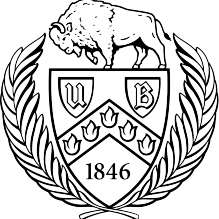The Doctor is in!

Introducing the UBSSW DSW Program
by Jana Eisenberg
The University at Buffalo School of Social Work (UBSSW) is now offering a professional Doctor of Social Work (DSW) degree program. The 39-credit, part-time, fully online program will begin with a Fall 2019 cohort. Aimed at expert MSW practitioners, the DSW will build on our signature strengths of the trauma-informed and human rights perspective, while also capitalizing on emerging technologies to innovate social work education and practice.
Only about 15 schools in the country currently offer the DSW; we will be the first SUNY and the first in the region. The DSW, with its emphasis on clinical application, differs from the UBSSW’s research-intensive PhD. For this reason, some of the DSW admission criteria includes a minimum of two years post-MSW direct practice experience, as well as access to a practice population.
Our investment in the DSW aligns with the demand for it amongst our alumni, communities and the profession’s evolution. The number of programs offering practice doctorates—and, the number of professionals choosing to earn this credential—is growing, particularly in allied health professions such as nursing, pharmacy, psychology and nutrition. Our imperatives include maintaining pace with other disciples, and assuming a leadership role in shaping social work education and professional practice.
Part of determining the interest and need for the program was our 2012 UBSSW graduate survey; we asked those who are clinical-licensure eligible or had a clinical license if they would consider such a program, and almost 64% of respondents said that they would.
Louanne Bakk, PhD, has been named director of the DSW program, which, in addition to the innovative, fully online educational environment, will provide opportunities to build and participate in global professional learning networks (PLNs).
“Following our trauma-informed and human rights perspective, the DSW program will educate students with a desire to advance their professional practice,” said Bakk, who has been at UBSSW since 2013. “Professionals will have the opportunity to build knowledge and learn to more effectively incorporate these concepts into the implementation and evaluation of evidence-based treatments in direct practice settings with vulnerable populations.”
“It’s exciting—I’m absolutely thrilled to be assuming this role,” she added. “Based on my own practice experience, I see there is a definite need for this advanced training within the profession. I think the program will be extremely popular as we move forward.”